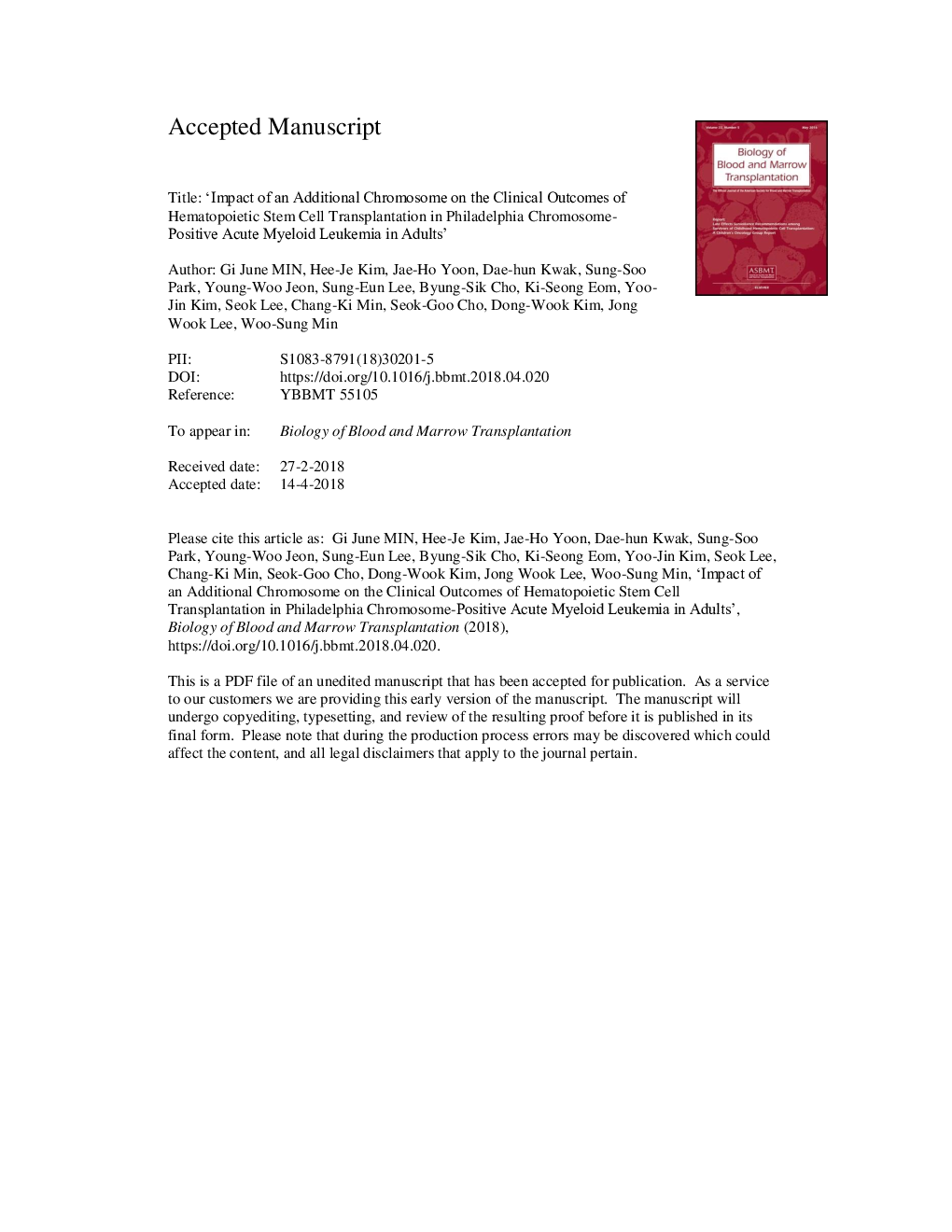| Article ID | Journal | Published Year | Pages | File Type |
|---|---|---|---|---|
| 8949649 | Biology of Blood and Marrow Transplantation | 2018 | 25 Pages |
Abstract
The incidence of Philadelphia chromosome positivity (Ph+) in adults with acute myeloid leukemia (AML) is very low. Ph+ AML is considered to be high risk for failure to attain remission or for early relapse after standard chemotherapy. Because of the low incidence of the disease, it has been difficult to determine the best treatment, including the effects of tyrosine kinase inhibitors. We retrospectively analyzed 29 patients with Ph+ AML (median age, 45 years; range, 18 to 80) managed at our center between 2002 and 2016. Two patients were not treated at all, 3 received repeated low-dose cytarabine, and 24 were treated with 3â+â7 standard induction chemotherapy. All 27 treated patients also received interim imatinib 400âmg orally until the day of the next chemotherapy cycle began or as conditioning for allogeneic hematopoietic cell transplantation (HCT), which was performed in 17 patients. Of the 29 patients with Ph+ AML, 7 (24.1%) had additional inv(16), 3 of whom had therapy-related AML. In the 7 with inv(16), the median age was younger (31 versus 44 years, Pâ=â.083) and the complete remission (CR) rate was relatively higher (85.7% versus 54.5%, Pâ=â.214) than in those without inv(16). Among the 27 treated patients, 20 (74.1%) achieved CR after standard chemotherapy with interim imatinib and 2 (7.4%) achieved CR after low-dose cytarabine with interim imatinib. After a median follow-up of 65.5 months (range, 13.4 to 156.6), the 5-year overall survival (OS) among all 27 treated patients was 43.1%. For the 17 patients who underwent HCT the 5-year OS of 17 patients (10 in subgroup without inv(16) and 7 in subgroup with inv(16)) treated with allogeneic HCT was 69.3%. All 7 with inv(16) were still alive at the end of the study. In contrast, all patients not treated with HCT died within a median of 6.25 months (range, .2 to 18.2). Interim imatinib combined with chemotherapy yielded an acceptable remission rate in adult patients with Ph+ AML. Allogeneic HCT as a postremission therapy provided long-term disease control in two-thirds of those who underwent the transplant. We also demonstrated that inv(16) was related to a favorable outcome in Ph+ AML, including therapy-related AML.
Related Topics
Life Sciences
Biochemistry, Genetics and Molecular Biology
Cancer Research
Authors
Gi June Min, Hee-Je Kim, Jae-Ho Yoon, Dae-hun Kwak, Sung-Soo Park, Young-Woo Jeon, Sung-Eun Lee, Byung-Sik Cho, Ki-Seong Eom, Yoo-Jin Kim, Seok Lee, Chang-Ki Min, Seok-Goo Cho, Dong-Wook Kim, Jong Wook Lee, Woo-Sung Min,
